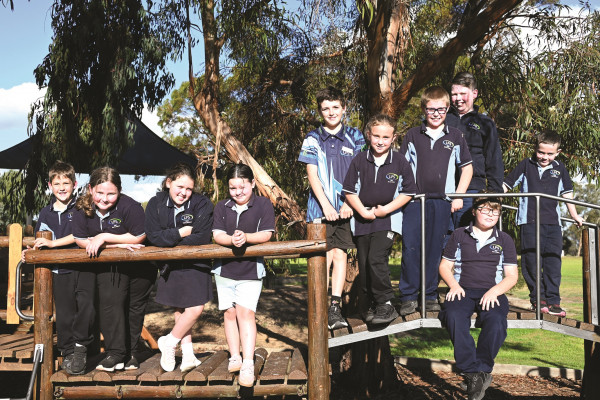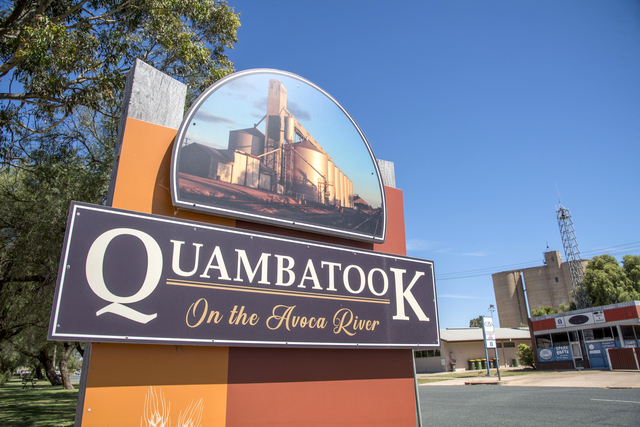Currently fewer than fifteen students attend the primary school, spread across two classes combining prep to grade two, and then grades three to five.
With two teachers and a full-time education support staff member, Principal Jodie Fletcher says the educational attention and emotional care doesn’t get much better.
“The school has that real family mentality, everyone here – the staff, students – all feel like part of one big family,” Ms Fletcher said.
“Because we are so small, people might think there might not be enough exposure to social development, when in fact it’s the opposite.
“There’s so much one-on-one development time with staff, and we’re able to cater immediately to each student’s individual needs.
“The interaction between students of different ages is also really positive.
“There’s a very strong culture of leadership amongst the older students; they’re out in the playground guiding the little ones and they know they’re being looked up to in the classroom.
“The little ones follow their lead, and if one falls over or is hurt it’s usually another student who gets to them first to see if they’re okay.”
Over the course of three years, Ms Fletcher and the community at LPS have worked to embed their school values – respectful, responsible, inclusive – into every facet of school life.
Ms Fletcher says the values underpin everything they do at the school, and the results speak for themselves.
“Each week we do ‘morning circles’ where students are asked to reflect on their wellbeing and learning – essentially to make sure their social and emotional state and their engagement levels are good so we can see what we can improve on,” Ms Fletcher said.
“We also do exit tickets in our classroom, so asking: what did you take away from that learning? Where did you struggle? What did you like about the lesson delivery? Was it engaging? So we know exactly from the students where they’re think they are at.
“The behaviour and wellbeing data is at an excellent level, we can adjust anything so quickly to suit individual students due to the school being smaller”
However, the benefits of being a smaller school do not end with social wellbeing outcomes.
As students learn in a classroom with multiple varying age groups, each lesson and subject are differentiated.
This means that LPS is not teaching curriculum set to a classroom; they’re teaching a curriculum set to your individual child.
“It means they’re getting their individual needs met,” Ms Fletcher said.
“No one is able to fall through the cracks because we’re not teaching to a mass prescribed set.
“The moment any student struggles, or excels, we’re able to identify that and provide them with either more support or more challenging work.”
Each student has an individual learning plan with aligned goals, which students and teachers work together to achieve.
Recently, Graham Thompson and helpers from the Men’s Shed restored the old timber LPS fort.
“The kids have not stopped playing on it since,” Ms Fletcher said.
“They were out there today playing cats and dragons, because it’s got a bridge you can hide underneath.”
Earlier this year, the school opened their Milky Bar Garden – the building of which was a whole school effort as part of their Little Workshop program.
“We’ve got a few agricultural kids here from farms, and they like to have that hands-on learning approach,” Ms Fletcher said.
“The kids created the garden with our school president. They did all the preparations, dug up the lawn.
“But also calculated how much soil we’d need in maths class, determined the costs and breakdowns of the garden.”
Ms Fletcher says the sense of belonging to the school is palpable.
“It’s huge. In communities like Leitchville, your students are the community, their parents are the community and the history,” Ms Fletcher said.
“Their sense of pride in the school is outstanding, and our sense of pride in them is immeasurable.”







